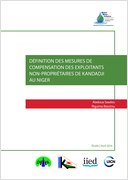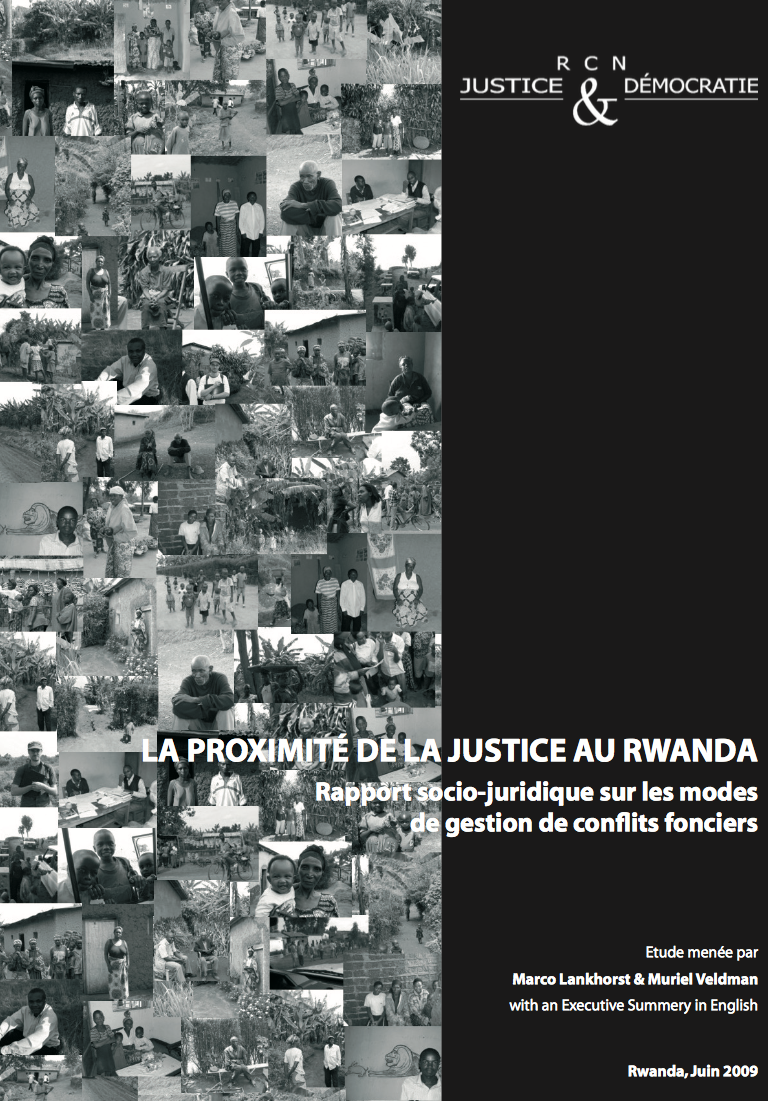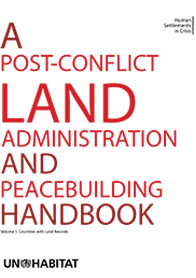Federal Democratic Republic of Ethiopia : Options for Strengthening Land Administration
Over the coming decades, land policy and
administration, for urban as well as rural areas, will be
critical for Ethiopia's development. The vast majority
of people making up the Federal Democratic Republic of
Ethiopia's (FDRE) predominantly agricultural economy
live in rural areas. Finally, land policies and
administration can contribute significantly to the
objectives of promoting gender equality and protecting
Land Delivery Systems in West African Cities : The Example of Bamako, Mali
Urban and peri-urban land markets in rapidly expanding West African cities operate within and across different coexisting tenure regimes and involve complex procedures to obtain or make land available for housing. Because a structured framework lacks for the analysis of such systems, this book proposes a systemic approach and applies it to Bamako and its surrounding areas.
Land Tenure for Social and Economic Inclusion in Yemen : Issues and Opportunities
The report, Land Tenure for Social and
Economic Inclusion in Yemen: Issues and Opportunities was
completed in December 2009. The report addresses the
problems of land ownership in Yemen and the various social
and economic problems associated with the system of land
ownership. Property rights under Yemeni Law are expressed
both in custom and statute, but both are informed by shari a
(Islamic law), which provides the basic property categories
TLC Y TBI amenazan a la Soberanía Alimentaria
La industrialización agrícola en el sigo XX provocó una transformación en los procesos del sistema agroalimentario, que trajo consigo la desconexión del productor con el consumidor. En la actualidad, mientras que la mayoría de los consumidores sólo optan por la adquisición de alimentos para satisfacer las necesidades básicas de nutrición; otros consumidores empiezan a interesarse por la dimensión social, ambiental, cultural, territorial y de salud que engloba el hecho alimentario.
La proximité de la justice: Rapport Socio-Juridique sur les Mode de Gestion de Conflits Foncier
Ce rapport, qui s’inscrit dans l’objectif du programme de RCN Justice & De?mocratie «Pour une justice de proximite? », pre?sente les re?sultats d’une e?tude des modes de re?solution de conflits fonciers par les syste?mes judiciaires et pre? judiciaires au Rwanda et propose des mesures pour rapprocher la justice de la population. Deux exemples peuvent servir a? introduire le genre de conflits fonciers typiques au Rwanda et les questions sociales que ces conflits soule?vent.
Better public sector governance through partnership with the private sector and civil society: the case of Guatemala’s forest administration
REDES ALIMENTARIAS ALTERNATIVAS, CONTRIBUCIONES A LA RECONEXIÓN DEL CONSUMIDOR CON LA ALIMENTACIÓN
La industrialización agrícola en el sigo XX provocó una transformación en los procesos del sistema agroalimentario, que trajo consigo la desconexión del productor con el consumidor. En la actualidad, mientras que la mayoría de los consumidores sólo optan por la adquisición de alimentos para satisfacer las necesidades básicas de nutrición; otros consumidores empiezan a interesarse por la dimensión social, ambiental, cultural, territorial y de salud que engloba el hecho alimentario.
Tanzania’s Village Land Act 15 years on
The year 2016 marks 15 years since the new wave land reforms became operational in Tanzania. Despite its ambitious goals – encouraging land registration and titling, and empowering women and other vulnerable groups – the results are disillusioning. A brief overview of 15 years of implementation, using the Village Land Act as a case study.
Indigenous people are losing their livelihood
In many Asian, African, and South American nations, indigenous people are being driven from their homes: Government authorities are leasing hundreds of thousands of hectares of land belonging to indigenous people who only in the rarest of cases possess deeds to the land that are recognised by the authorities. Although in many cases their ancestors have lived on the land for centuries, these rights were never recorded in the land registries. The way of life and the livelihood of many indigenous peoples are severely threatened by their land being sold off.
A Post-Conflict Land Administration and Peacebuilding Handbook
Throughout history, conflicts have been waged over land. Confrontations over territory, border disputes, occupation of the territory of one State by another, or grievances stemming from inequitable access to land invariably have dramatic consequences for human settlements. Never before has this been truer than with today?uss very different types of conflict which are increasingly taking place within nations.








